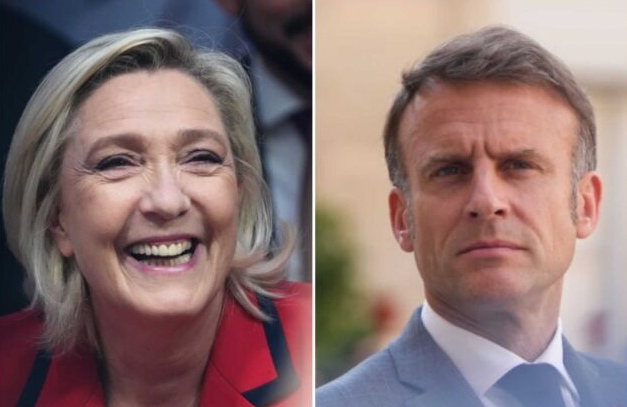No matter how unfortunate the upcoming snap parliamentary elections turn out for Emmanuel Macron, he has always had to take comfort in the fact that he will remain president until 2027 – with all the sacrosanct foreign policy and military powers that entails, POLITICO reports.
However, his right-wing opponent Marine Le Pen is signalling that if her National Rally party wins the prime minister’s post, she will not be content to let Macron set the country’s strategic course through the presidential prerogative, which traditionally covers hot topics such as Ukraine, defence, diplomacy and the choice of EU commissioner.
This struggle for core powers is sparking fierce debate within France and terrifying France’s EU and NATO partners as the 68-million-strong nuclear-armed country looks set for a period of instability. Assumptions from the US to the Indo-Pacific that the president’s powers will simply be unchecked on the international stage after the election may prove unfounded.
France has experienced periods of co-rule before – when the president and prime minister belonged to different parties – but it was always a fairly straightforward co-operation between parties with similar worldviews. This time, a right-wing prime minister – perhaps Jordan Bardella of the Rassemblement Nationale, ahead in the polls – will blow up the political order.
On Wednesday, Le Pen gave the clearest indication yet that she intends to snatch any shred of power she can from Macron if her party wins a strong enough majority in parliamentary elections.
In explosive remarks, Le Pen dismissed the title of France’s commander-in-chief as an “honourable title” and said the real power, particularly over the budget, lies with the prime minister’s government. Le Pen told daily Le Télégramme:
“Jordan [Bardella] has no intention of picking a quarrel with Macron, but he has set red lines. On Ukraine, the president will not be able to send troops.”
Macron said earlier this month he was “finalising” plans to send military trainers to Ukraine, and tensions with Russia are likely to take centre stage in the debate over France’s strategic direction.
Macron pushing for Thierry Breton
Ahead of the first round of voting on Sunday, Le Pen is also raising the stakes on EU policy after her party challenged Macron’s right to appoint France’s next European commissioner, a role traditionally seen as a gift from the president.
The European commissioner is a hugely important role for France, and Macron wants his candidate to be given a large economic portfolio that would allow Paris to put its priorities – such as strengthening European industrial champions – at the top of the EU agenda.
According to five officials, Macron is pushing for Thierry Breton, who has promoted Macron’s vision for defence and industry, to continue as French commissioner.
Bardella, however, insists it will be his government that will choose France’s commissioner in Brussels, saying this week that the appointment will be one of the “first decisions” they will make.
If the Rassemblement Nationale does not win enough seats to form a government, it will still be the largest group in parliament and will be well placed to reject government laws it does not like.
Strong constitution
On Thursday, Macron’s allies invoked legendary World War II leader Charles de Gaulle, former president and founder of the Fifth Republic, to hit back at Le Pen.
Armed Forces Minister Sébastien Lecornu said “the constitution is not ceremonious” and quoted de Gaulle as saying the president was “responsible for France” and “responsible for the Republic.” François Bayrou, leader of the French centrist party MoDem, allied to Macron, said:
“You are profoundly challenging the Constitution.”
Naturally, the devil is in the details. According to the French constitution, the president is the head of the armed forces and in charge of French foreign policy, while the prime minister runs the government and thus domestic policy. But a closer look at the division of powers between the president and the prime minister turns out to be a much more complicated picture. The budget, as Le Pen pointed out, is indeed the most important leverage over many policy areas in the National Assembly. Eric Landot, public law specialist, said:
“It’s super complicated, there is no clear boundary. The president is the chief of the armed forces, but Article 21 says the prime minister is responsible for national defence.”
According to Landot, Le Pen is wrong when she says the president’s role is only “ceremonial” – but there are many ways the prime minister can clip the president’s wings. He also said:
